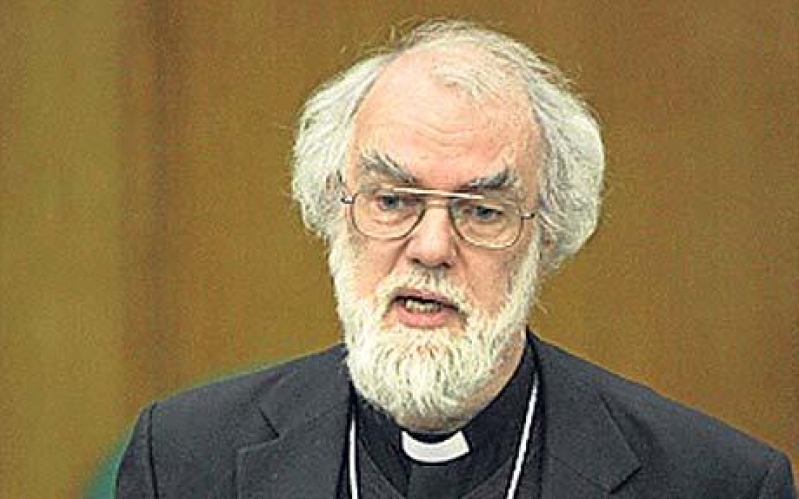
According to the former Archbishop of Canterbury, Lord Rowan Williams, England is a "post-Christian" nation. This may be because many Christians in that country feel afraid to express their faith.
Williams made the comments in an exclusive interview with the Telegraph to generate interest in a new book he has written, but also after Prime Minister David Cameron declared Britain was a Christian nation and created a strong reaction from detractors and supporters alike. Williams believes this "Post-Christian" trend will more than likely continue as the Church loses sway with people in years to come.
Cameron made his comments during a commemoration for the 400th anniversary of the King James Bible at Oxford University, just before Easter. Cameron spoke at Christ Church to people who had come to worship and celebrate the Holy Book.
"We are a Christian country and we should not be afraid to say so," The Prime Minister told the audience.
Cameron went on to say that he felt the nation was in moral collapse, and that Britain's Christian heritage helped to create a space where all faiths could exist peacefully and with tolerance.
The Prime Minister said "live and let live" had too often become "do what you please" in today's society. He said promoting Christianity was not "somehow doing down other faiths," and he encouraged Christian Brits to share their faith.
Cameron's comments inflamed some in the country, pushing Atheist Nicholas Clegg, the Liberal Democrat leader, and member of parliament to respond by suggesting that the Church of England should be formally disestablished from the state.
Williams tends to believe a label like "Christian Nation" is a bit too strong, according to his interview in the telegraph.
"If I say that this is a post-Christian nation, that doesn't mean necessarily non-Christian. It means the cultural memory is still quite strongly Christian. And in some ways, the cultural presence is still quite strongly Christian. But it is post-Christian in the sense that habitual practice for most of the population is not taken for granted."
"You need to pick your way quite carefully here," he continued. "A Christian nation can sound like a nation of committed believers, and we are not that. Equally, we are not a nation of dedicated secularists. I think we're a lot less secular than the most optimistic members of the British Humanist Association would think."
But, According to a poll in the telegraph, contrary to what many of Cameron's naysayers brought forth after the Prime Minister's comments, there is substantial support for the his view among England's 53 million citizens. Findings from the ICM survey of 2,000 people conducted in April showed more than half the public - 56 percent - regard Britain as a Christian country, a figure which rises to 60 per cent among men and 73 percent among those over 65s. It also showed that nearly two-thirds of practicing Christians appear to be frightened of speaking out about their beliefs. and there is widespread concerns over the perceived vulnerability of Christians in the UK to abuse or discrimination. 52 percent of the people polled counted themselves as Christian.







